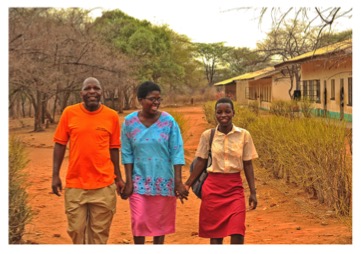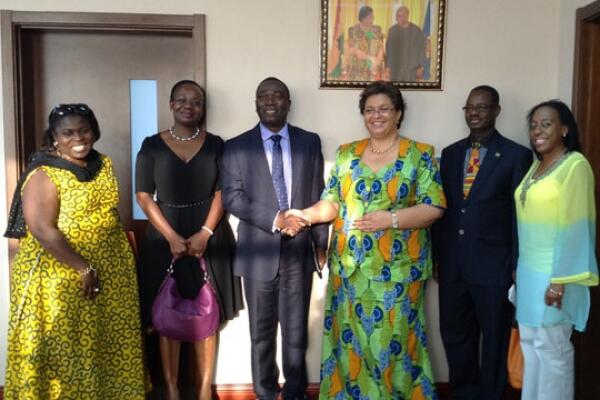The United Nations Population Fund (UNFPA) Ghana country office, has welcomed its new Representative, Babatunde Ahonsi, who arrived in Ghana on Thursday July 31, 2014. Presenting his letter of credence to the Minister of Foreign Affairs, Ms Hanna Tetteh on Monday, August 11 2014, Mr. Ahonsi thanked the Minister and her staff for facilitating his clearance which has enabled him to begin work in Ghana. He assured the minister that he would bring his expertise to bear on the development of the nation and said he was hopeful his tenure in the country will be fruitful.
He indicated that the Ghana Office of the United Nations Population Fund works to advance maternal health, gender equality, population and development, and adolescent sexual and reproductive health in Ghana. He said 70% of UNFPA funds are disbursed at the district level in Ghana. “UNFPA uses the decentralised system in programming. The organization took a bold step to work in tandem with the decentralised development administration policy of the government of Ghana by disbursing 70% of its programme support budget directly to the district assemblies since 2013,” said Mr. Ahonsi.
On her part Ms Hanna Tetteh commended the UNFPA for its resolve to work at the district level. She said as a member of parliament she appreciates the needs of the people at the community level, particularly, the pregnant women whose first point of call when in labour is the traditional birth attendant where health facilities are inaccessible. She urged Mr. Ahonsi and UNFPA in general to work with the health ministry and the Ghana Health Service to ensure that local community structures and resources are fully engaged in maternal health care delivery since anecdotal data from her constituency shows that these still play a vital role in many rural and hard-to-reach communities.

Babatunde Ahonsi who holds a B.Sc (Sociology) first class honours degree from the University of Lagos and a Ph.D. in Population Studies from the London School of Economics and Political Science, was the Country Director of the Population Council in Nigeria. He has worked with the Ford Foundation in West Africa and lectured at the Universities of Ilorin, Calabar as well as Lagos, where he taught various courses in Sociology and Demography. He has expertise in reproductive health and human development focusing on gender and youth-related policy and programming issues.
Babatunde has also been actively involved in technical assistance to several NGOs across West Africa working on gender equity and sexual and reproductive health and also served on the Gender and Rights Advisory Panel of the Department of Reproductive Health & Research, WHO, Geneva; and the Board of the United Nations University-International Institute for Global Health, Kuala Lumpur.


